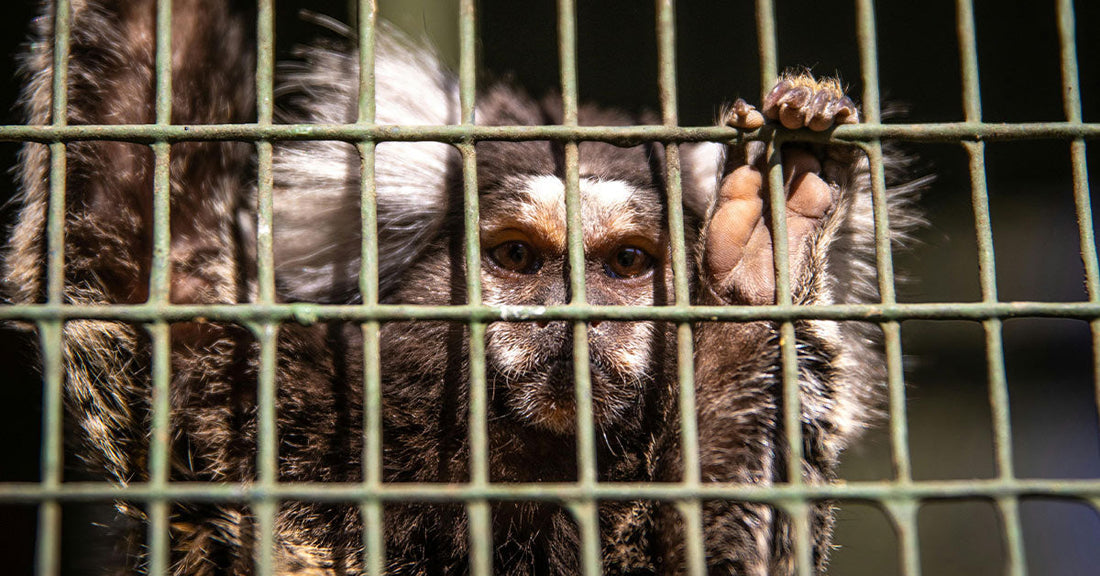Harvard Researchers Prepare to Kill 1,500 Rhesus Macaques as Lab Funding Disappears
Matthew Russell
A sweeping freeze on federal funding has left Harvard University researchers facing a grim dilemma: without immediate financial intervention, animals in ongoing medical studies may be euthanized. The situation is not hypothetical. It’s urgent, and it’s already in motion.
Rhesus macaques, central to tuberculosis vaccine research, now face the threat of death not due to disease, but due to depleted resources. Dr. Sarah Fortune, a Harvard immunologist, oversees a $60 million multi-lab project that relies on federal funds to feed and care for the primates. With the money halted, so is the research—and so is the care.
“They’re so precious,” she told People. “It’s such a heavy responsibility to work with them and to just be asked to kill them halfway through the study…”

Harvard's lab animals face euthanasia due to a $2.2 billion funding freeze.
Sudden Shutdowns, Irreversible Losses
President Donald Trump’s abrupt decision to withhold $2.2 billion in multi-year research funding, a retaliatory measure following Harvard’s refusal to comply with his political demands, has triggered immediate consequences. The move impacts dozens of labs, hundreds of staff, and countless hours of progress toward treatments for cancer, ALS, and infectious diseases.
Professor Donald Ingber, whose research focuses on mitigating radiation damage in cancer patients, said the stop-work order arrived just days after he was encouraged to expand his work. The project also involved NASA, developing bone marrow organ chips using astronaut cells to study the impact of space radiation.
“We’re never going to get to Mars,” he told The Daily Beast, “if research projects like this are wiped out.”

The animals are healthy and mid-study, not terminal or suffering.
From the Lab to the Brink
In Professor David Walt’s lab, work on early detection for neurodegenerative diseases and cancer came to a halt. The biological materials central to his studies have a short shelf life. If not used within days, months of work—and the lives of the animals involved—will be wasted.
“We are basically going to have to go back to square one,” Walt told the Daily Beast report.
The moral calculus is wrenching. Most labs under threat have long committed to reducing unnecessary animal testing and optimizing humane treatment. Yet now, with the financial rug pulled out from under them, even basic care may become unaffordable.
According to LiveScience, 1,500 rhesus macaques and critically endangered cotton-top tamarins must either be relocated or euthanized.
External sanctuaries could rehome these animals if given the chance.
Collateral Lives in a Political Feud
At the heart of this crisis is not just a budget cut, but a political clash over academic independence. Harvard refused to comply with a set of demands from the Trump administration that included surrendering admissions data, dismantling diversity programs, and adhering to undefined federal directives. In response, the administration issued sweeping stop-work orders through the National Institutes of Health.
The result, according to The Economic Times, has pushed one of the world’s most prominent research institutions to the brink. Job cuts are underway.
The future of dozens of life-saving projects is uncertain. And the animals at the center of it all—bred and trained for complex biomedical studies—may be euthanized due to a lack of funds to house or feed them.

Harvard has not publicly committed to exploring all humane options.
No Alternative in Sight
Federal funds make up roughly 75% of Harvard Medical School’s research budget, leaving little wiggle room when politics disrupt the pipeline. As People reports, Harvard President Alan Garber issued a strong statement opposing government interference, writing, “No government—regardless of which party is in power—should dictate what private universities can teach, whom they can admit and hire, and which areas of study and inquiry they can pursue.”
Despite widespread condemnation from civil rights groups and researchers, the federal freeze remains in effect. External funding, where it exists, cannot replace the scale or structure of federal grants. For the animals caught in the middle, time is rapidly running out.

Compassionate care is still possible with immediate action.
Lives Worth More Than a Line Item
These research animals are not abstract data points. They are living beings, many with years of behavioral training and documented care histories. Scientists have committed themselves to using these animals ethically in service of breakthroughs that could change or save human lives.
But with the political machinery in Washington grinding against scientific independence, that balance is breaking. As researchers scramble to find emergency solutions, they’re confronting a truth that extends far beyond the lab: lives—animal and human alike—are being used as leverage.
Click below to take action.


